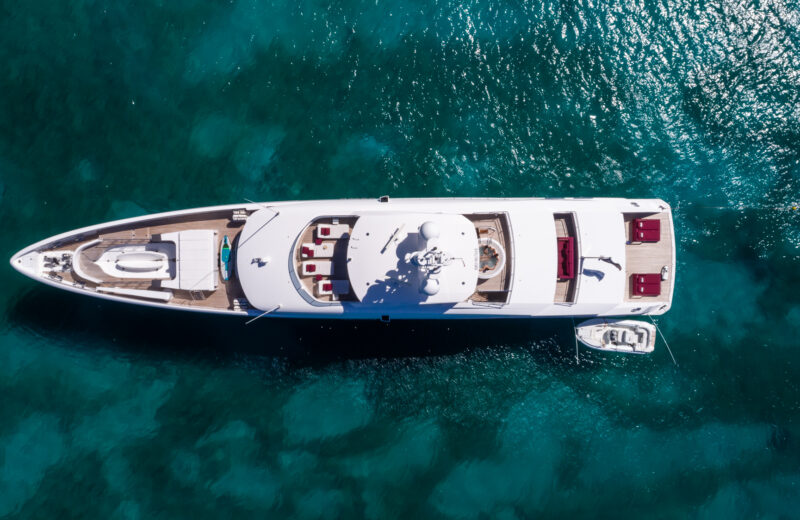VAT and superyachts: four key questions answered

Taxing questions: Ezio Vannucci, from law firm Moores Rowland Partners, answers four key questions about VAT.
The European Commission’s decision to target tax breaks offered in the Italian and Cypriot yacht industries raises key questions about the interpretation of VAT liabilities encountered by superyachts cruising in Mediterranean waters this summer.
Here, SOS Yachting’s fiscal adviser Ezio Vannucci, from law firm Moores Rowland Partners, answers four questions about VAT and how it is applied to yachts moving between European ports.
Q1: How do yachts attract VAT? When they sail into EU waters for the first time or at other times?
A: Article 56 of the EU VAT Directive 112/2006/CE states: “1. The place of short-term hiring of a means of transport shall be the place where the means of transport is actually put at the disposal of the customer. 2. For the purposes of paragraph 1, ‘short-term’ shall mean the continuous possession or use of the means of transport throughout a period of not more than thirty days and, in the case of vessels, not more than ninety days.”
Therefore, VAT is due on any kind of rent and charter contracts performed within the union’s territorial waters and should be paid in the EU country where the means of transport (yacht) is put at the disposal of the client (charterer), writes Vannucci.
For example:
- If a charter starts in France and then cruises in other countries’ waters, French VAT is due on the total amount of the charter fees
- If a charter starts in Italy and then cruises to other countries, Italian VAT is due in Italy on the total amount of the charter fees including fuel consumptions
- If a charter starts in Montenegro or in another non-EU country, Italian VAT is due only on the portion of the charter (in terms of days) in which the yacht cruises in Italian territorial waters or enters a port
Q2: Do some countries (such as Italy for example) charge VAT at lower rates than the standard of 22%, which has led other countries to complain to the Commission about unfair competition?
A: Please find below a table to recap VAT percentages due on charter contracts in the most attractive EU countries in the Med for charter activity:
• Italy charges a rate of 22%
• France charges 20%
• Spain charges 21%
• Croatia charges 13%.
As is normal, a charter involves the use of yacht both within and outside EU territorial waters, in accordance with the “territorial” criteria of the VAT Directive, VAT should be charged only on the portion of the charter fees spent in EU territorial waters.
Considering that it would be difficult to objectively monitor precisely the movements of a yacht in international (outside 12 miles from coasts and islands) and territorial waters, in order to establish the VAT taxable portion of the charter, Italian Tax Authority with Circular 76/E and 49/E dated 2002 allow to apply presumed percentages of the yacht use within the territory of the European Union, which have been established on a flat percentage basis with reference to the type of propulsion (engine or sail) and the length of the yacht .
A similar VAT provision is also in place in France where, in contrast to Italy, the presumed percentages use of the yacht within the EU is the same for any type of yacht.
The rules are as following:
• Italy: 6.6% to yachts over 24 metres. VAT reduced percentage in Italy increases if the yacht overall length decreases, according to a specific table
• France: 10% to all yachts – no matter what the overall length.
At present, we are not aware about what will be the result of the infringement proceedings moved by the EU Commission against Italy on the above mentioned application of the VAT-reduced percentage. Therefore, the current Italian VAT law on charters will remain fully in place until the final decision of the European Commission on the infringement’s procedure still under discussion against Italy.
Q3: On what is VAT charged for superyachts: ‘an entry fee’ and/or on yachts’ goods and services such as fuel and harbour fees and living expenses?
A: Generally speaking, a commercial yacht can benefit from VAT exemption in Italy and also in France on goods/provisioning and any kind of services including fuel (so-called VAT: Italian Commercial Exemption and French Commercial Exemption):
- If compliant with a certain number of requirements of the VAT regulations in place
- If these goods and services are not related to the APA/charterer.
The charterer cannot benefit from any VAT exemption and so has to pay VAT not only on charter fee, delivery/redelivery fee, but also on operating costs including fuel and oil consumption – if no VAT is paid at source.
Q4: Is VAT ever refundable for those in the yachting industry – such as when they leave EU waters?
VAT is not refundable when paid by the final user (charterer). However, VAT may be refundable within the ordinary VAT rules by the owning company as a business-to-business transaction.
Meanwhile, earlier this month Superyacht Investor reported that the biggest surprise about the European Commission’s decision to target tax breaks offered in the Italian and Cypriot yacht industries was why it took so long to act and raised the question: Which country will be next?

